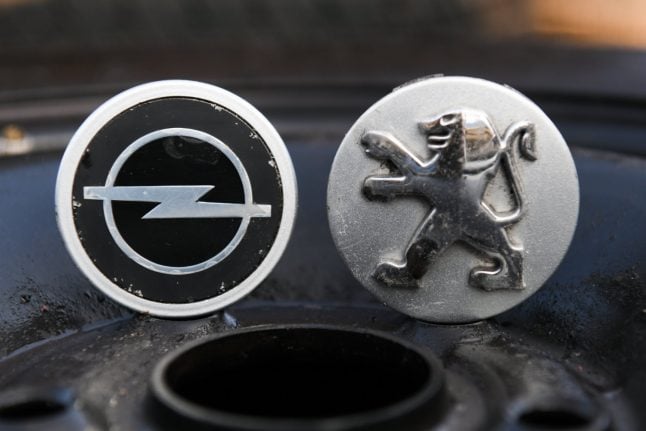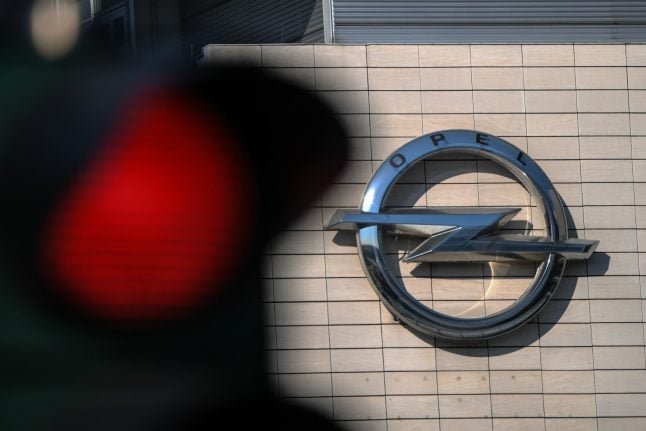Despite remaining a familiar sight on German roads, the carmaker with the “Blitz” (lightning) logo and its British sibling Vauxhall haven't booked a profit since 1999.
Recent woes cast a pall over the firm's storied history, dating back to its founding in 1862 by Adam Opel as a sewing-machine and later bicycle manufacturer.
Based in Rüsselsheim outside Frankfurt, the company was Germany's largest carmaker for decades before being overtaken by northern rival Volkswagen.
As GM lets go of a subsidiary it has held since 1929, here are some of the problems prospective new owner PSA will inherit:
Brexit
Opel hoped to finally return to profit in 2016, three years into the tenure of chief executive Karl-Thomas Neumann.
The carmaker's future had been in doubt before his arrival, as GM mooted selling it off in 2009 – a year when the US giant was itself bailed out by taxpayers after going bankrupt – before changing its mind.
After a flurry of short-lived CEOs, Neumann managed to reduce losses andstop the slide in Opel's market share only to run up against a slump in the value of the pound after Britain's vote to quit the EU last June.
The UK is the biggest market for the Insignia and Corsa models, sold thereunder the Vauxhall brand, and Opel ended up booking a 257 million-euro ($271-million) loss for the year.
By contrast, Cologne-based competitor Ford Europe managed to make a pre-taxprofit in 2016 even as sterling plummeted.
“Brexit is a false excuse” for Opel, industry expert Ferdinand Dudenhöffer of the CAR automotive research institute argued, pointing to the manufacturer's other problems.
Overcapacity
Experts agree that Opel has not matched the success of other manufacturers like Ford or PSA – the French group behind Peugeot, Citroen and DS – in reducing overcapacity at its factories.
The situation has worsened since the 2008 financial crisis, which sent car sales in Europe tumbling.
Operating production sites below their maximum output weighs carmakers down with costs, and Opel's 2014 shuttering of its plant in the western German city of Bochum with the loss of 3,000 jobs has not staunched the outflow.
“Opel suffers more from overcapacity than other European carmakers, meaning it has to offer big discounts to keep up a certain level of production and that hits its profitability,” Stefan Bratzel of the CAM research institute explained.
Caged in
Fearful of cannibalising market share for its Buick and Chevrolet brands, Opel parent GM never allowed the German firm to expand outside of Europe – especially into the lucrative Chinese market.
“All the western carmakers have been making their money in the Chinese market these past few years,” said Marc Staudenmayer, a partner in the Advancy management consultancy.
“Opel wasn't allowed to do that, which explains its underperformance since2005,” he continued. “Opel was reined in too much by GM.”
Locked into Europe, the firm has battled fierce competition in a crowded market against the likes of Volkswagen, Peugeot, Renault and Fiat.
Failure to stand out
Under Neumann's tenure, Opel has turned to celebrities like beloved former Borussia Dortmund manager Jürgen Klopp or model Claudia Schiffer to boost its image.
The high-profile endorsements have been the most visible part of a campaign to re-energise the brand, which lacked clear positioning abroad and suffered from a bad image at home.
Opel has achieved a “spectacular revival of the brand in terms of its image,” Advancy's Staudenmayer said.
“Managers managed to wake up the brand from its sleep” and make it attractive to young people again, he argued.
But Dudenhöffer countered that “Opel's biggest mistake has been investing too much money in marketing at the expense of its products.”



 Please whitelist us to continue reading.
Please whitelist us to continue reading.